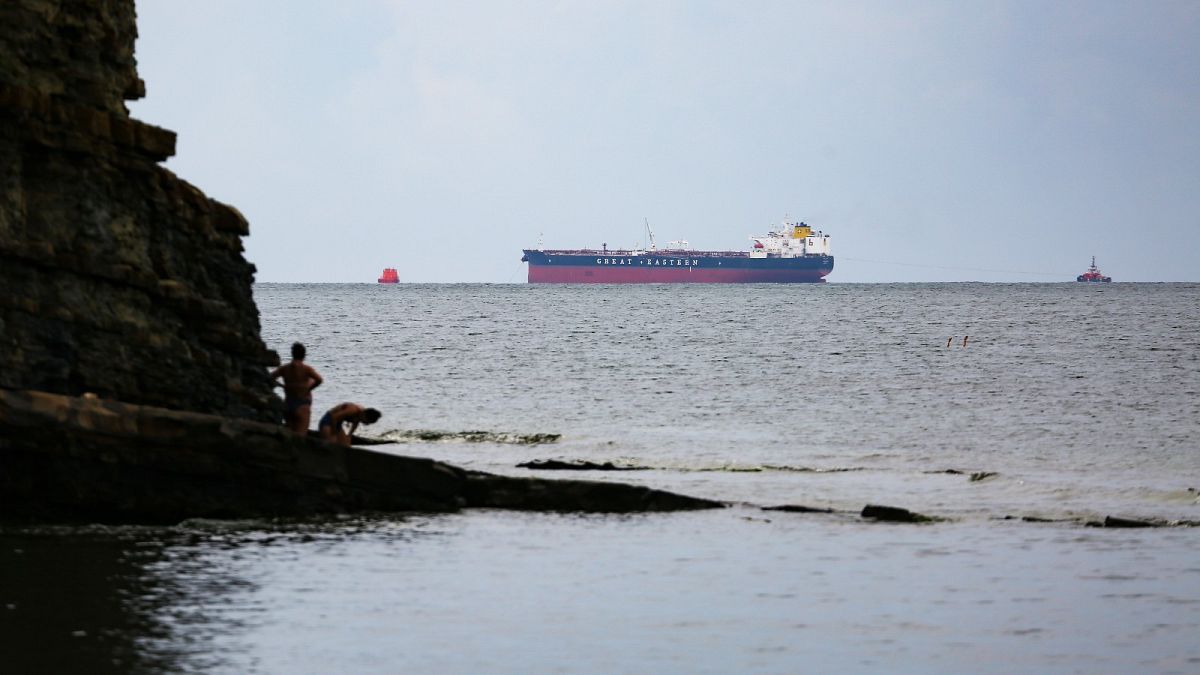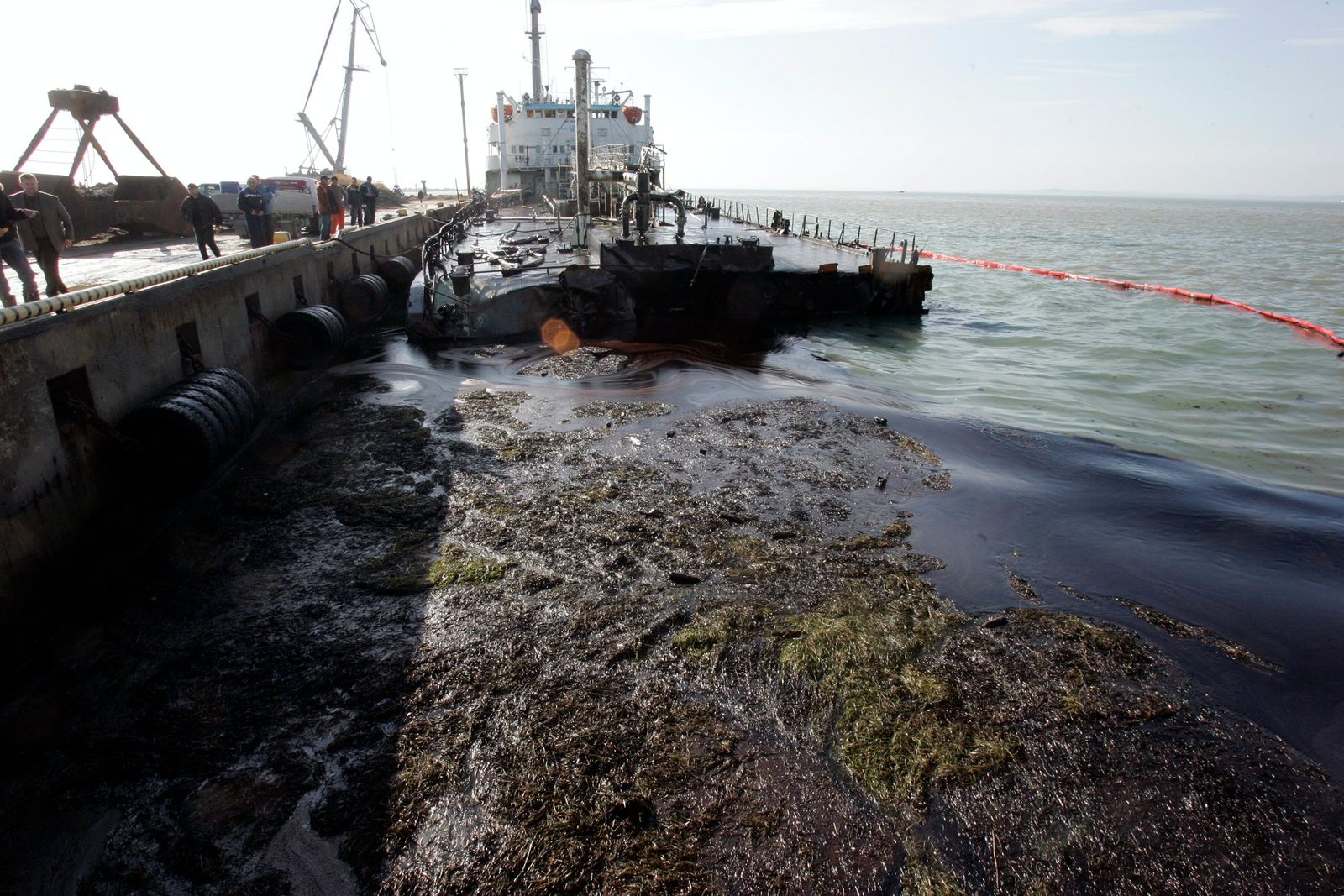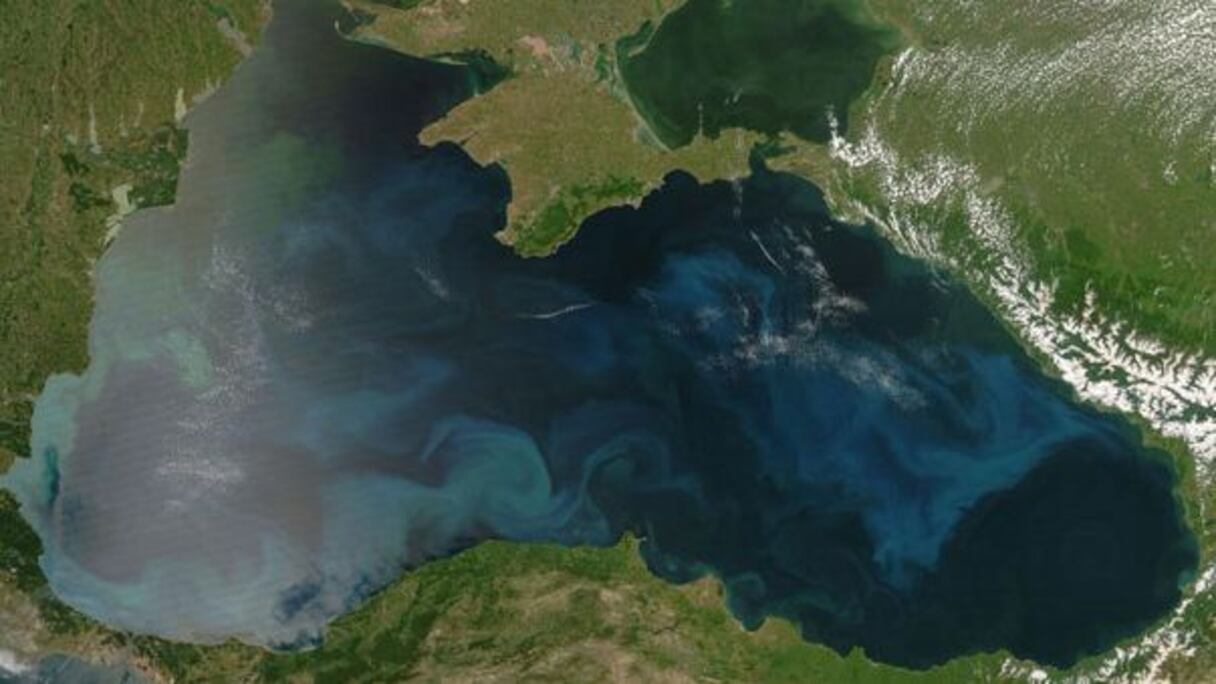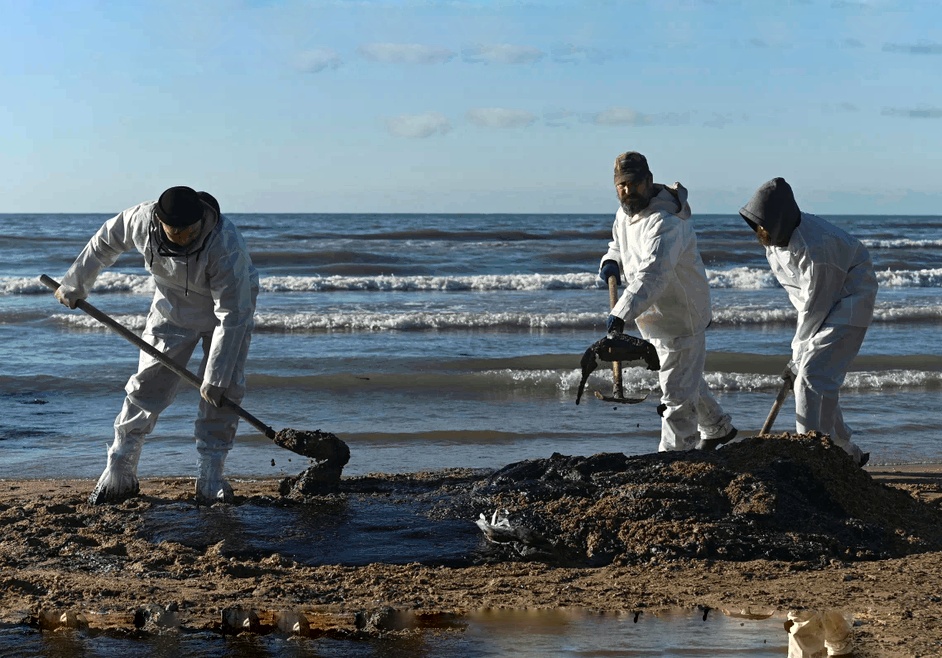
By : Georgiy Klyuyev
Marine Consultant
The actions of the Russian Federation leading to environmental disasters will not go without consequences. The global community holds all the legal and political mechanisms necessary to hold it accountable for laws.
The fuel oil spill serves as yet another testament to a lack of responsibility towards nature and may set a precedent for stricter ecological oversight over Russia;s activities.
Cleaning coastal areas
Local ecologists report that cleaning the contaminated coastal areas could take at least two years. During this time, heavy hydrocarbon fractions will continue to settle at the bottom of the Black Sea, disrupting its fragile ecosystem.

Fuel oil spill reached Novorossiysk
On December 22, 2024, the fuel oil spill reached the beaches of Novorossiysk, marking one of the largest ecological catastrophes in the Black Sea, with visible consequences already unfolding.
The marine fauna faces significant risks.
First and foremost, the marine fauna faces significant risks. On a single beach alone, the bodies of 11 endangered dolphins and 143 dead birds have washed ashore.
The dolphins residing in the Black Sea are now in a high-risk zone. Three dolphin species inhabit the area, all listed as endangered.
Fuel oil poses a fatal threat
Fuel oil poses a fatal threat to these marine mammals, entering their systems through contaminated fish or direct contact with oil slicks. Once ingested, the oil causes hypoxia in the animals, often leading to death.
Deceased animals
Bird populations have also suffered substantial losses. Volunteers rescued over 700 affected birds, most of which have been cleaned and sent to rehabilitation centers. However, a significant number of deceased animals remain undiscovered.
The ecological outlook
The ecological outlook for this spill suggests long-term consequences for the Black Sea;s ecosystem. Heavy petroleum products settling on the seabed poison habitats for marine organisms. Additionally, toxic substances can enter the food chain, affecting all levels of marine flora and fauna.
Ecologists emphasize that recovery from such disasters takes years, sometimes even decades. To mitigate the damage, international environmental organizations, additional funding, and innovative cleanup methods must be mobilized.

This catastrophe is yet another stark reminder of the importance of nature conservation and preventing environmentally hazardous actions. The Black Sea, as a critical natural resource, requires our attention and protection to prevent similar critical natural resource
The fuel oil spill in the Black Sea, which resulted in the death of endangered dolphins and Black Sea Goby, may have serious political and legal consequences for the Russian Federation.
Ecological crimes
The international community is increasingly responding to ecological crimes, particularly when they impact protected species and trans boundary ecosystems. Actions by Russia leading to environmental disasters could serve as grounds for new sanctions.
Additional restrictions

The European Union, the United Nations, and other international organizations must initiate additional restrictions against Russia, citing violations of international conventions.
The destruction of biodiversity

The destruction of the Black Sea;s biodiversity affects not only Russia but also neighboring countries. This could heighten regional tensions, as marine resources are vital to the economies and ecosystems of coastal nations.
Law proceedings
Affected countries, particularly those sharing access to the Black Sea (Ukraine, Turkey, Bulgaria, Romania, Georgia), may initiate proceedings at the International laws and international agreements.
Russia may also face compensation claims for the damages caused, including the costs of cleaning the Black Sea;s waters, rehabilitating affected species, and restoring the ecosystem.
ٌRead more
Georgiy Klyuyev writes : Russia’s Exclusion from the IMO Council




